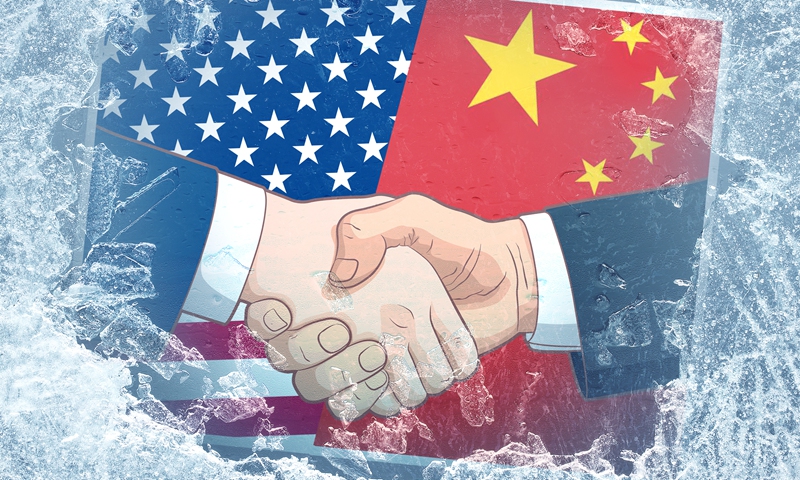Shanghai mayor meets with US ambassador to China amid speculation of soothing ties
By Zhao Yusha and Zhang Dan Source: Global Times Published: 2020/8/6 22:28:25 Last Updated: 2020/8/7 10:35:12

China US Photo:Global Times
US Ambassador to China Terry Branstad visited Shanghai and met with Shanghai Mayor Gong Zheng on Thursday, during which Gong reaffirmed the city's ambition to continue opening up. During the meeting, Gong said that Shanghai remains a significant bridge of China-US economic and trade ties, and holds frequent exchanges with San Francisco and other sister cities.
San Francisco has recently been drawn into the bilateral wrestle as some speculated the US would consider closing the Chinese consulate in San Francisco after Houston.
The meeting also occurred a day after Chinese Foreign Minister Wang Yi put forward four principles of a framework for China-US ties, including steering clear of red lines and avoiding confrontation, and keeping the channels open for candid dialogue.
Chinese experts believe that little by little, negotiations on a regional level will promote higher level communication, and thaw the ice that threatens bilateral relations.
Opening up is Shanghai's largest advantage and the city will firmly deepen reform, expand openness and build an international and convenient business environment.
In the face of the COVID-19 pandemic, the medical supplies from China to the US have saved lives, and many of the goods came from Shanghai, Branstad said, expressing his gratitude.
Giving recognition to Shanghai's progress in recent years, the US envoy said he expects to promote bilateral exchanges and cooperation, and overcome the influence brought by the COVID-19.
He also hopes the 3rd CIIE could be successfully held as scheduled.
The meeting has drawn wide attention as it occurred at a sensitive time when disputes between the two countries have escalated--from trade to diplomacy, and even education.
It shows that despite the frictions, China and the US are actively exploring more positive channels for communication, for example, by expanding exchanges on the regional level, Li Haidong, a professor at the Institute of International Relations of the China Foreign Affairs University, told the Global Times.
Li believes that as the US general election is less than three months away, the Trump administration, who is adopting a "blame China" tactic, will further intensify its antagonist policies against China.
"When negotiations between central governments are halted, regional-level communication, or talks at any level will promote high-level talks," Li said.
"We are ready to restart the dialogue mechanisms with the US at any level, in any area and at any time. All issues can be put on the table for discussion," State Councilor and Foreign Minister Wang Yi said in an interview with the Xinhua News Agency on Wednesday.
The US' abrupt closure of China's consulate in Houston in late July marks the latest tussle between Beijing and Washington. China then closed the US consulate in Chengdu in retaliation.
The Chinese consulate in San Francisco was drawn into the vortex, as the FBI alleged that a Chinese biological researcher "connected to the Chinese military" on "visa fraud" has avoided arrest by taking refuge in the consulate. The move propelled many to speculate whether the US is planning to close the San Francisco consulate.
Regional-level communication should not be sabotaged by the Trump administration's lunatic policies toward China, said Li, noting that Shanghai Mayor Gong's mention of San Francisco also hinted that more local exchanges between Chinese and US cities should be carried out.
Regional communication may be a trend for future development of China-US ties if bilateral relations keep tightening, Li noted.
Economic cooperation 'ballast stone'
Observers said that choosing Shanghai as a place for such a meeting also shows that economic cooperation is the "ballast stone" for bilateral cooperation.
As Chinese and US trade officials will hold talks over the phase one trade agreement next week as reported, the Shanghai meeting showed that bilateral economic exchanges are indispensable, Gao Lingyun, an expert at the Chinese Academy of Social Sciences, told the Global Times on Thursday.
He said the upcoming talks may cover both countries' affirmation to carry out the phase one trade deal and its importance to the global economic recovery under the pandemic.
RELATED ARTICLES:
Posted in: DIPLOMACY